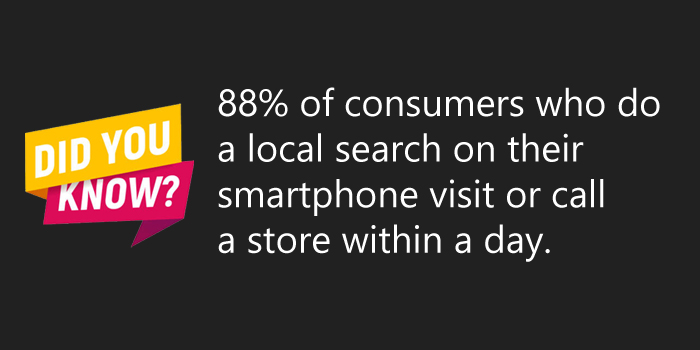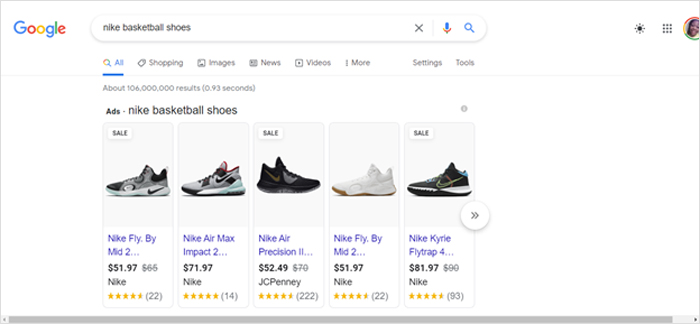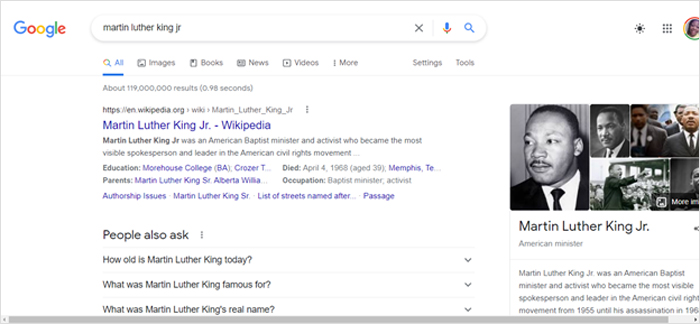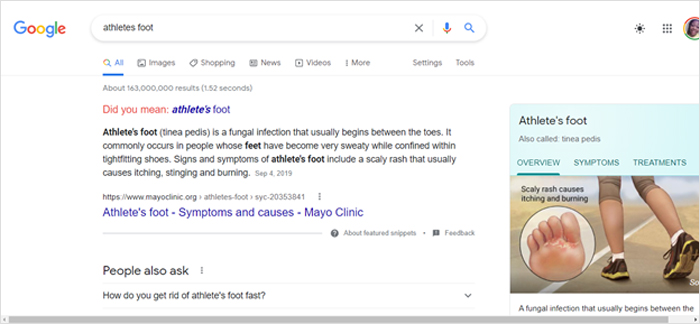Google is undoubtedly the world’s greatest search engine (at least until ChatGPT came around).
In fact, Google controls about 92.05% market share in the internet industry.
In plain terms, Google holds a monopoly as not only the most used search engine, but also the most popular online resource.
It’s no secret that the word “Google” is synonymous with researching something.
Consumers will even use Google to find local businesses. Improving your website’s ranking on a search engine is called search engine optimization (SEO).

To better understand how SEO and website development works, it’s important to first understand how Google actually works.
While Google’s algorithm is extremely complicated (and getting more so every day), understanding the Google basics and the basics of SEO doesn’t have to be extraordinarily complicated.
Below is a complete guide in how Google ranks websites.
Table of Contents
What is Google?
Google is a search engine, a platform used by browsers to process websites into search results. When you type in a search term, or a keyword, into the search bar, you’ll receive billions and even trillions of results depending on your query. A query is simply what you’ve searched for.
Google’s corporate history starts with its founding by Stanford Ph.D. students Larry Page and Sergey Brin in 1998. 
As the company grew, investors brought in Eric Schmidt and Jonathan Rosenberg.
Schmidt, a seasoned executive, was brought in to act as CEO until Larry and Sergey were seen fit to fully run all operations.
Larry subsequently became CEO after Eric Schmidt.
Google CEO Larry Page stepped down in 2015 to become Google’s executive chairman.
In the early days of the internet, it was difficult to perform extensive research and searches into everyday topics. Google became one of the first search engines available, and it’s still widely used today.
Google is owned by Alphabet Inc and receives much of its profit from its landmark advertising service, Google Ads. In fact, Google is the richest company in the world in regards to market capitalization.
This is a measure of a company’s value on the market with the total amount of dollars in stocks. Google’s market cap is valued at $117 billion, which is unusual for a search engine.
Compared to other search engines like Yahoo and Bing, Google is a global technology leader that acts as the de facto source of information on the internet.
As a result of its ability to create superior products, the company has been able to attract smart, creative people who continue to help hone the company’s core search ranking algorithm.
To learn more about how Google works, it’s important to first know what a search engine is.
Below, we’ll discuss what a search engine is and how it works.
What is a Search Engine?
The internet is an infinite network that combines all computers from across the world. This way, data, like websites, can be accessible to everyone. If you build a website and host it over a server, other people access it on the internet.
The question is — how will others be able to find your website? The answer is through a search engine. A search engine is a software system that helps people carry out web searches.
To put it simply, it organizes all information on the internet and compiles them into results based on how relevant they are to a query. To achieve this feat, search engines are built using algorithms, constructed by machine learning and artificial intelligence (AI).
For example, the internet serves as a library of information. A search engine serves as a card catalog, or the system that shows people how to locate books in the library. The Dewey Decimal system, a system for ranking items in the card catalog, is the search engine’s algorithm.
With all of this said, how has Google built a reputation as the world’s top search engine? The answer is actually simpler than you may think.
What is Google’s Business?
Like other search engines, Google managers pride themselves on having the most accurate search results in the world. When you search for a pair of “Nike basketball shoes” on Google, you’ll usually be paired with results showing where you can buy the shoes:

How does Google know to pair these types of results with queries that have buyer intent? The answer lies in what is known as search intent. This is the intent that a person has when searching for a keyword.
When analyzing search intent, search engines assess:
- Does the web user want to buy a product or research something?
- Does the web user want to perform research before buying?
- Does the web user just want to buy something?
Google has a very complex algorithm that answers all of these questions. Currently, it’s a mystery exactly how Google’s central algorithm works. Internet marketers rely on snippets of Google’s algorithms through updates to learn more about how the search engine has improved and how they should adapt.
To the average person, knowing how Google or a search engine works isn’t necessary. However, billions of people use Google everyday to find local businesses, research products before buying, and even interact with corporate enterprises.
Business owners should have an internet in elevating their website’s presence on Google. This process is known as search engine optimization (SEO).
What is SEO?
SEO is the process of improving your website’s ranking on search engine results pages (SERPs). The higher your website appears in search rankings, the more visible it will be to your target audience.
There is a strong correlation between social signals and rankings.
There are literally dozens of Google ranking factors that make up SEO.
That’s why SEO is a very in-depth process that involves optimizing a website’s appearance to Google’s standards. For example, websites need to be fast to retain users so they can eventually convert.
Positioning is important when it comes to SEO. Over 25% of people click on the first Google search result. Many of these people may even click on the second and third result.
However, if your website is found even lower or on the second page of Google, chances are that your audience won’t bother to find your site. And, why should they? If your competitors are outranking you, why would your target audience try to look for your website instead.
Google and SEO are inextricably linked. Google wants business owners to understand their system, outrank their competitors, and create more relevant search results.
How Google and SEO Relate?
If you’re interested in creating an SEO strategy for your business but don’t know where to begin, the good news is that it’s not too late to start ranking well online. Search engines like Google and Bing use digital spiders to crawl every website on the internet.
These spiders create an index for every website that exists on the internet. Of course, this doesn’t explain how Google ranks websites in the first place. Google is just like any business that wants to maintain a near monopoly.
They are extremely concerned with their reputation as the world’s leading search engine. As such, they will only rank the best and most relevant websites for a query. This is why Wikipedia ranks for searches on historical figures:

Wikipedia is an online encyclopedia that’s well-regarded in this space. This is also why the Mayo Clinic ranks for “athlete’s foot” with a snippet from their website:

The Mayo Clinic is an authoritative organization dedicated to creating informational medical journals. Likewise, Google will even rank businesses that are authorities in their niche.
The first step to becoming an online authority, whether you’re a plumber or entrepreneur, is to create a fully-functional website. Below are the standards Google expects out of every website on the internet.
What Does Google Value in a Website?
Not all websites are created equally. Some will rank, and some will plummet to the depths of the SERPs. The end result is determined with how well the website was constructed in the first place.
Google has several quality signals to determine a website’s quality and relevance. SEOsa and smart creatives are always concerned with creating websites that align with Google’s quality signals.
As a business owner, so should you.
Here are all of the standards Google looks for in a website:
- Appearance — Search engine spiders may not have eyes, but they do rely on people to determine if a website has an attractive appearance. If people leave a website because it’s unattractive, Google will know and rank the website accordingly.
- Relevance — Are you providing the type of content people are looking for after searching a keyword? Google will only rank the most relevant websites on the internet.
- Technical — How fast is your website? How is your website equipped to not only deliver to your target audience but also to search engine spiders.
How to Improve Your Website’s Ranking?
Now that you understand how Google works and why it’s important to boost your website’s ranking, you should fully understand how to improve your positioning for keywords relating to your business.
When it comes to improving your website ranking, there are three main categories you should be mindful of. These are on-site SEO, technical SEO, and relevance. All of these categories work together to help websites rank online.
Therefore, if your website is in the trenches of the SERPs, you should review all of these categories to learn more about how you can create an effective strategy that will make a difference.
On-Site SEO
On-site SEO is the process of optimizing the elements on a website to make sure that your website is ready to rank. Unlike technical SEO, on-site SEO is a catch-all term involving any measure you can take to improve your website’s overall ranking.
On-site SEO includes a bunch of different tasks, such as:
- Keyword Research — Keyword research is the process of looking for keywords that your audience is using to find a business like yours. Understanding this, you can embed these keywords on your website to cause Google to rank it any time a potential customer uses the keyword.
- Optimization — Keywords have to go somewhere. They are usually inputted in a website’s meta description and title tags. This is the information that appears under a website’s link on a SERP. As you can imagine, optimizing these fields are very important.
- SSL — Google has created a requirement for all websites to have an SSL certificate. This is a basic level of encryption protecting websites from being compromised by hackers. Your hosting provider should provide an SSL certificate, and you’ll know you have it if your URL prefix is “HTTPS” instead of “HTTP”.
Technical SEO
Technical SEO is essentially like looking under the hood of a car. It’s a very complex and in-depth process of making sure a website’s technical features are intact. There are quite a few tenants of technical SEO.
If you’re unfamiliar with this process, it’s recommended to hire a reputable website development agency to help. In any case, the core aspects of technical SEO are:
- Indexation — How is your website ranking for major keywords, if at all? Indexation is a process that involves preparing your website to be indexed by search engine spiders.
- Site Speed — Both people and search engines expect your website to be fast. A slow website will always be ignored by people, and Google has no incentive to rank it, especially if better results are available.
- Site Architecture — Search engine spiders need to be able to crawl your website efficiently in order to index it. The architecture, or make up, of your website will heavily impact that process.
- User Experience — Google pays close attention to how people interact with your website. The better their experience is, the more likely they are to stay. As a result, Google will begin to take notice.
Relevance
Lastly, Google is focused on ranking websites that are actually relevant to a particular keyword. For example, let’s say that you created a wonderful website for your brand that checks all of the boxes we mentioned above.
However, your business sells Nike basketball shoes, and you want to rank for “men’s basketball shoes” since it draws in millions of monthly searches. The problem is that while you may rank for this keyword, you will never outrank a company with a web page dedicated solely to “men’s basketball shoes”.
Above all that we mentioned above, Google values relevance more than anything else. Eventually, relevance and AI through looking at things like inferred links, totally trampling on your best link building efforts. You’ll need to consider the search intent of any keyword you plan to rank for. Conduct a search for this keyword and see what it is already ranking.
This should let you know if your business is going to have any success in achieving the same results.
Tie Your Success with Google’s Success
As you can see, Google is invested in ranking the best websites on its platform. The quality of your website will ultimately depend on the website development agency you hire.
If you would like to take the next step in building a smart, creative website that you can scale to new heights, contact us today to speak to a member of our team.
Tim holds expertise in building and scaling sales operations, helping companies increase revenue efficiency and drive growth from websites and sales teams.
When he's not working, Tim enjoys playing a few rounds of disc golf, running, and spending time with his wife and family on the beach...preferably in Hawaii.
Over the years he's written for publications like Forbes, Entrepreneur, Marketing Land, Search Engine Journal, ReadWrite and other highly respected online publications. Connect with Tim on Linkedin & Twitter.
- How to Drive Traffic with Zero Search Volume Keywords - February 23, 2026
- SEO Hacking: The Top 32 White Hat SEO Hacks for 2026 - February 16, 2026
- Top 50 SEO & Marketing Blogs & Influencers for 2026 - February 3, 2026

